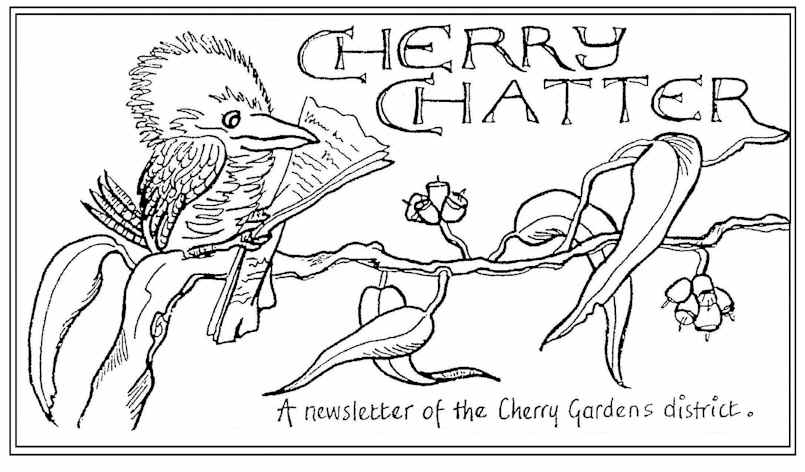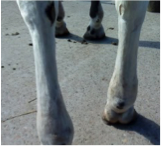Meadows Vet News
First aid for animals caught in a bushfire
On Wednesday night the 13th March Dr Greg will be giving a talk on first aid for animals caught in a bushfire as part of a CFS Bushfire Information night. This will be held at the Meadows Hotel so a good chance to have a meal first & then attend. The talk will have quite a few photos & information gathered from vets who have had a lot of firsthand experience with dealing with animals that have suffered burns!
Just a heads up for horse owners. We are seeing more than the usual number of cases of horses with swollen legs-may only be one or could be all four! This may be accompanied by not wanting to eat or drink as well as raised temperatures and increased respiratory rates (actually looks like they are panting!). Please seek veterinary attention quickly as in this hot weather the chances of secondary colics due to dehydration is common.
March is National Pet Poisons Month
March is National Pet Poisons Month - designed to highlight all of the potential dangers around the home that pose a risk to our pets. Following are the most common!
• Human Medications
43 percent of calls to Pet Poison Helpline in the US tend to be for dogs that had eaten over-the-counter (OTC) or prescription medications. The majority of them involve antidepressants such as Prozac, Paxil, Celexa and Effexor, and common OTC drugs containing acetaminophen (e.g. Tylenol®) and painkillers e.g. Advil which can cause serious harm to dogs when ingested.
• Human Foods
16 percent of calls were for dogs that helped themselves to foods that are safe for humans, but poisonous for dogs. The most prevalent cases were for dogs that ate chocolate. Dark chocolate is the most dangerous since it contains high amounts of theobromine – a relative of caffeine that can be deadly. Xylitol, a sweetener in sugarless gums and candies, is also very dangerous and can be life-threatening even when ingested in small amounts. Raisins and grapes are often overlooked by dog owners as potentially dangerous, but they are extremely toxic and can cause kidney failure. Other human foods toxic to dogs include macadamia nuts, garlic, onions, yeast-based dough and table salt.
• Insecticides and Baits
7.5 percent of calls for dogs were because they ate insecticides in the form of sprays, granules, insect bait stations and more. While many household insecticides are well tolerated by dogs, certain potent types such as organophosphates (often found in rose-care products), can be life-threatening even when ingested in small amounts.
• Rodenticides
6.5 percent of calls for dogs were for dogs that got into mouse and rat poisons, which contain various active ingredients that are poisonous to dogs. Depending on the type ingested, poisoning can result in moderate to severe symptoms—anywhere from uncontrolled bleeding, swelling of the brain, kidney failure and seizures. Only one type of mouse poison (anticoagulant or blood thinner) has an antidote to counteract the effects of the poison. The rest, unfortunately, have no antidote and are more difficult to treat. There is also potential for relay toxicity, meaning that pets and wildlife can be poisoned by eating dead rodents that were poisoned by rodenticides.
• Dietary Supplements and Vitamins
5.5 percent of calls were concerning dogs that ingested dietary supplements and vitamins. While many items in this category such as Vitamins C, K, and E are fairly safe, others such as iron, Vitamin D and alpha-lipoic acid can be highly toxic in overdose situations. If you think your pet may have ingested something harmful, take action immediately & call the Vet
A Few Reminders!
We have a wireless digital x-ray unit for taking equine x-rays on properties - this has reduced the costs of xrays
Itchy pet season is here! The earlier you bring your pet in to see us the quicker we can start investigating the cause, the sooner the appropriate treatment and advice on managing or preventing further problems can be given. More importantly, the sooner your pet will thank you!
If you have a horse on sandy soil please remember to feed psyllium husks to help prevent sand colic. We only sell the highest grade husks which are the most effective!
Horses especially those in work often need electrolyte replacement during hot weather.




